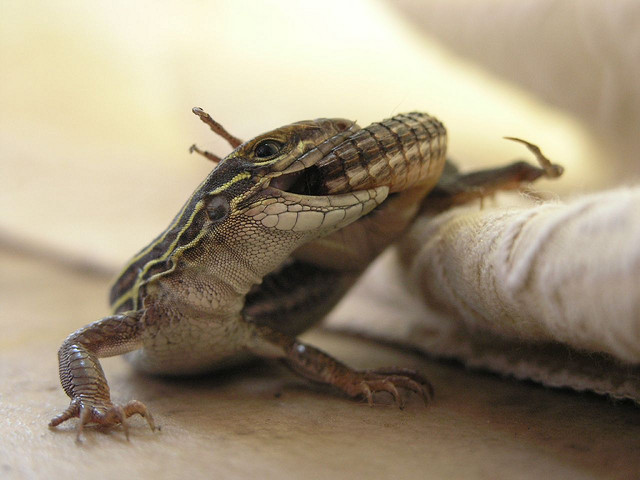The insatiable hunger of pancreatic cancer cells

Cells that make up aggressive pancreatic tumours are programmed to self-cannibalize to survive, and researchers have now discovered the cause of their unique eating habits.
Aggressive pancreatic tumours depend on autophagy – a process that cells use to digest chunks of themselves to produce energy and recycle material – to grow and survive. Researchers from the Harvard Medical School in Boston, MA, have now described a ‘switch’ that regulates this self-cannibalizing behaviour in pancreatic cancer cells. Their research, published in the prestigious journal Nature1, explains how some cellular digestive functions are constantly turned on in pancreatic cancer cells, but not in normal pancreatic tissue. Deciphering this key process in the hard-to-treat pancreatic tumours could open up new opportunities to treat the disease.
Pancreatic ductal adenocarcinomas, which make up the majority of pancreatic tumours, depend on autophagy to survive, but until now it was unclear how they maintain their high levels of self-recycling. A team of researchers led by Professor Nabeel Bardeesy set out to solve this mystery, and they made a far-reaching discovery.
The scientists’ research shows that a master regulator for the autophagy programme and the cellular digestion system – the lysosome – is constantly turned on. In normal cells, this switch, mediated by MiT/TFE proteins, is regulated in response to the cell’s energy demands. However, the autophagy switch of pancreatic cancer cells is not regulated in this manner- it remains in the ‘on’ position, consistently forcing these cells to produce a range of factors that boost autophagy and lysosome function. This, in turn, makes the cancer cells better adapted to survive the starvation stress commonly found in solid tumours.
Pancreatic ductal adenocarcinomas are aggressive, fast-growing tumours. This type of pancreatic cancer typically carries a dismal survival prognosis for patients – a staggering 97% of patients diagnosed with this type of cancer do not live beyond 5 years2. Understanding what these cancers depend on to survive and how these processes can be tweaked without affecting normal cells could open doors to targeted therapies.
After discovering why this metabolic programme is constantly turned on, more research can now focus on developing therapies based on these insights. The present study already highlights one potential target – a set of molecular ‘shuttles’ called IP07 and IP08 that help maintain the high levels of autophagy. IPO7 and IPO8 can bind to MiT/TFE proteins and move them away from potential regulators. These tiny shuttles are concentrated in pancreatic cancer cells, raising hopes that they may be an Achilles heel of pancreatic cancer – a disease where efficient treatments are scare and new drugs are much needed.
Edited by Debbie Nicol
References
- The full study can be found here
- CRUK has several informative UK statistics on pancreatic cancer










